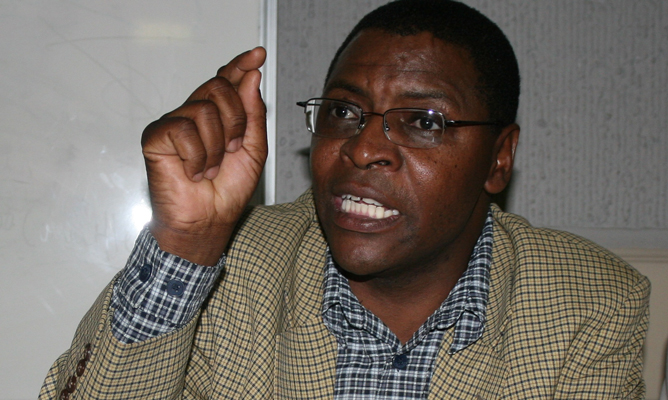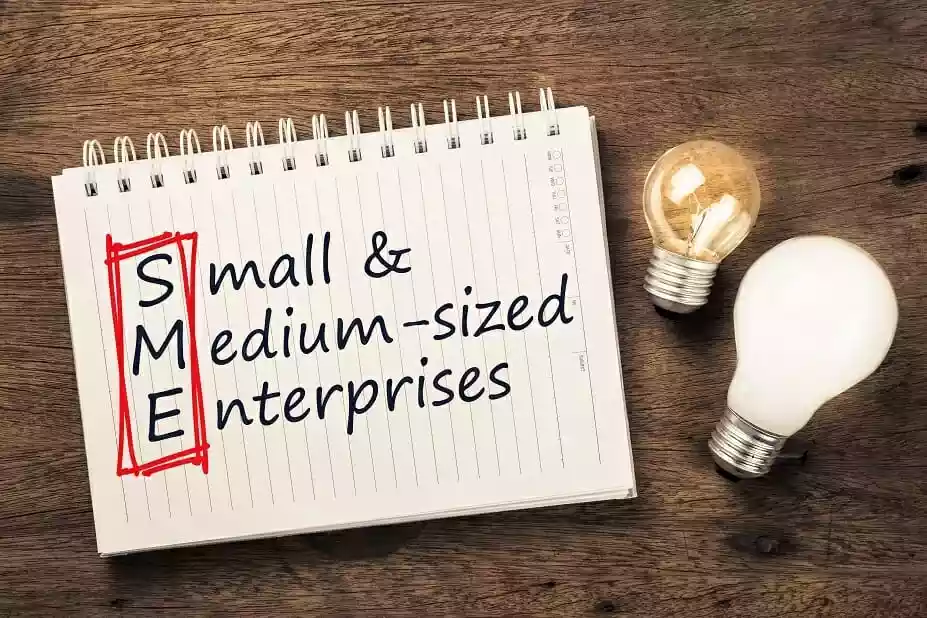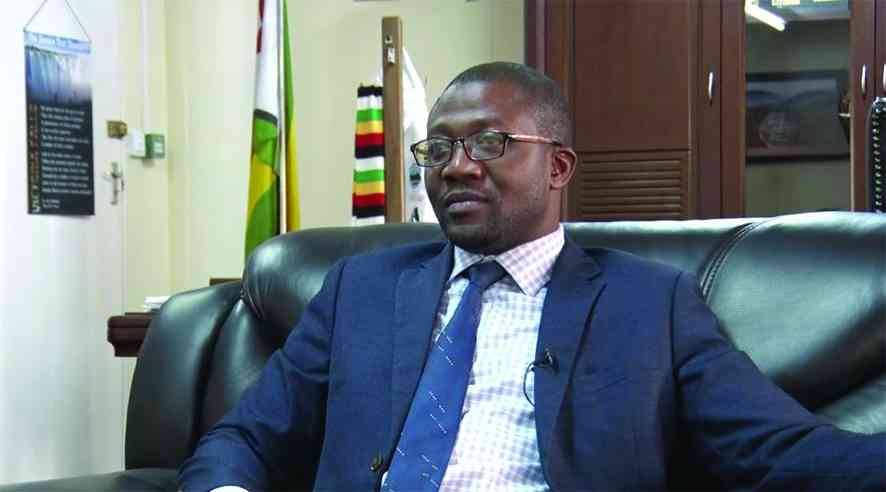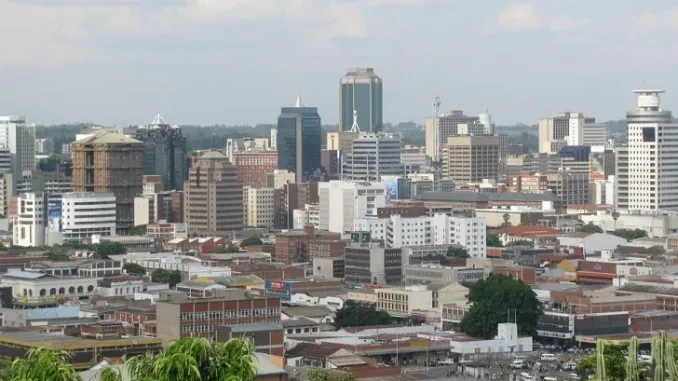
Following the collapse of a $750 million Zisco/Essar deal last year, a lot has been said with no comprehensive answers of what really went wrong. NewsDay business reporter (ND), Mthandazo Nyoni caught up with the former Industry and Commerce minister Welshman Ncube (WN) on what went wrong on the deal as well as problems he faced as one who was in charge of the transaction. Below are the excerpts of the interview:

ND: Prof Ncube, I understand that Zisco/Essar deal has collapsed. As a former Industry and Commerce minister privy to the developments, can you tell us what really went wrong on the deal? WN: To answer your question, let me start from where we are going back. It is unsustainable for Essar to proceed with the deal as originally conceived almost 6 years after the bidding process that they were involved. Again, my understanding from my interaction with the Essar people and the ministry people having worked there for almost five years, is that by the time Essar was seeking to pull out of the deal, the government has had finally done the things that should have been done 6 years ago. In other words put differently, the ministries of Industry, Finance, Water, Transport and finally Mines have all eventually by late last year agreed to do all the things they were required to do. But in the meantime a lot of things had since happened which made it very difficult to proceed with the deal.
The wage bill arrears for the Zisco Steel employees had ballooned to around $400 million. Just to pay arrears of people who remained nominally at work but were not producing anything was in the region of $400 million. So anyone who wants to proceed with the deal would have had to find $400 million to pay people for work that would have added no value, in other words, work that was never done. In addition to that, the foreign debt owed mainly to the Chinese who had funded the realigning of the blast furnaces which had been improperly done by us. The realigning never worked but was done and we obliged to pay those who had provided the finance. That debt continued to earn interest and was also running into hundreds of millions of dollars.
The German debt again haven’t financed, that debt continued and was also running into dozens and dozens of millions of dollars. With the net effect, remember, that there were local debts for water, electricity to a variety of suppliers which Zisco had not paid since before the inclusive government. If you put together that debt which was not static by the way, over the 6 years because interest upon interest compounded default penalties, were accumulating. You would have needed in the region of, as I understand, of nearly a $1 billion. Whereas when we processed this deal, $750 million would have been the total investment which would have addressed all the debts and also had enough money to refurbish the plant. As of last year, anyone who would want to proceed with the deal would have had to say I have $1 billion to clear past things without even putting one brick, which basically means that it would have been better for anyone to go and start a green field. Because if you have got $1 billion you can start a steel plant and here you are required to continue Zisco, starting with a negative of a billion dollars before you do anything. This is my understanding of the arithmetic from where I was so that by last year it became impossible to implement the deal given the obligation.
ND: So what does that all mean to the deal? WN: My understanding then is that under those circumstances, Essar said look you have delayed so much. This thing is now incapable of being operationalised in the manner in which we have started. Maybe we should start a process of how we can disengage. Of course Essar had already put millions of dollars. They had partially paid the employees, established offices and they had done studies. They had done a lot of things worthy dozens and dozens of millions of dollars and the now how do we pull back. What happened to the money they had already put in? What happened to existing obligation? My understanding now is that Essar has said to the government, of course I am not spokesperson for the government they can speak for themselves, they have said that, look lets disengage. This is not economic; it doesn’t make business sense to proceed. The government can try and find other investors.
ND: From your own view, what can be done to revive Ziscosteel? WN: My understanding from my conversation with the minister of Finance and others, is that for Zisco to be ever revived, certain thing has to be done and I am sure the government of the day recognises that and they have to do those things. The one thing that has to happen is the government to takeover Zisco debt in its entirety—the foreign and local debt which basically means the government has to find a formulae to say how do we pay off these employees and how they lay off and pay them off their arrears and whatever retrenchment things they should be paid so that you basically remove from the balance sheet of Zisco the $400 million or so. By the way every month as this thing is not resolved; the debt keeps going up because you keep adding salaries on your books of accounts for people who are not in fact at work. Again the foreign debt continues to incur a compound interest and penalties and so forth. The solution is for the government to say we have assumed the Zisco debt, both local and foreign so that you basically remove this albatross which is around steel production in Zimbabwe. You cannot revive steel production in this country when you are saying whoever wants to do it, inherit these obligations which had nothing to do with them. So the State needs to take because this was the State company. The reason we got here, when this thing could have done in 2010 if we had had the will.
ND: During your time, what was the mood around the deal given that you were from another political party? WN: During my time, everyone in government supported the deal, the President included, which is why the President went to officially launch ZimSteel. There was a lot of enthusiasm on Essar. It was doable if it had been done there.
- Chamisa under fire over US$120K donation
- Mavhunga puts DeMbare into Chibuku quarterfinals
- Pension funds bet on Cabora Bassa oilfields
- Councils defy govt fire tender directive
Keep Reading
ND: Who then is to blame for the collapse of the deal? What problems did you encounter in trying to implement it? WN: The one ministry which would not play ball was the Ministry of Mines up until the day we left government in 2013. The ministry of Mines would not play ball. I understand they only manage to play ball by last year when they eventually agreed the thing they should have agreed to in 2009. By that time it was too late. So ultimately for me, the responsibility for the failure rests entirely with the ministry of Mines because if the ministry of Mines had acted like all the other ministries did, like the ministry of Water, Energy, Transport, investment promotion including the Reserve Bank of Zimbabwe which had only given its approval when we were in government. This thing would have implemented in 2010-2011 and we would be somewhere different today. By the time the ministry of Mines played the ball with whoever was the new minister, it was too late in my respectful opinion.
ND: Is there any future for Zimbabwe’s steel production industry? WN: If you want this country to be once again a steel producer, we have all the raw materials which are required for steel production in this country. We have iron ore which is the major component that you require. We have the expertise in this country to produce steel, we have experience and the industrial revolution was driven by steel production. Any country that can produce steel has a head start in industrial development to any other country. All of your construction industry that we have to do, if we are to once again turnaround this country and begin to have construction industry, it doesn’t matter what building, what structure you are putting, steel is an essential component. We are currently importing thousands and thousands of tonnes of steel and enriching other countries and also exporting jobs. ND: What is the way forward given that the deal has already collapsed? WN: Government which is interested in the development of this country has to say we made mistakes in the past, we must bite the bullet and we must take over this debt so that whoever has to start steel production again, whether it is at Zisco or Chivhu or wherever doesn’t have the burden of historical debt sitting on their back.











